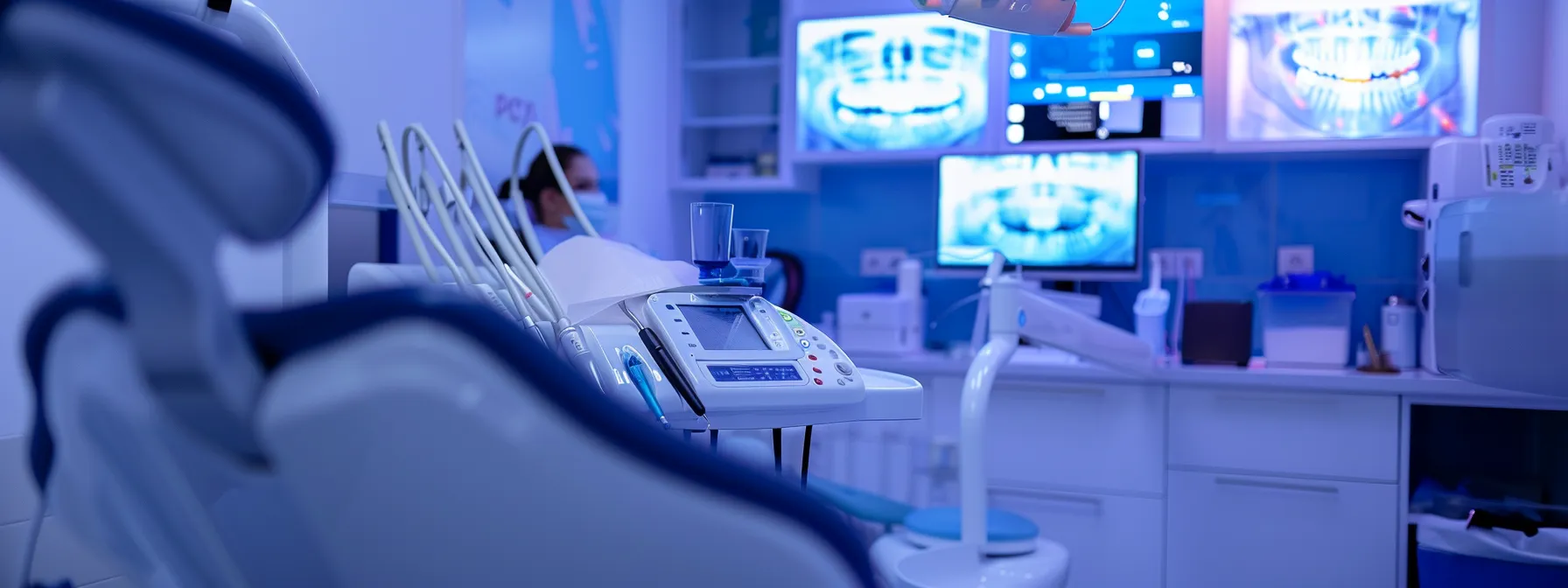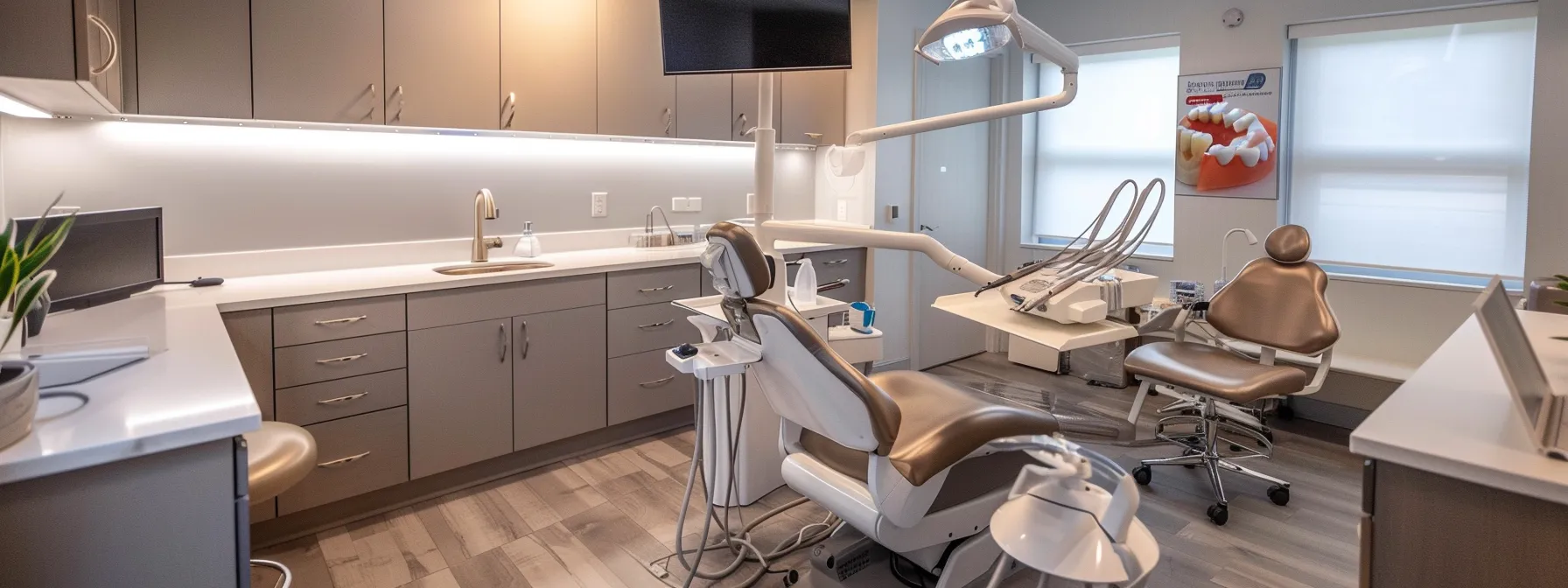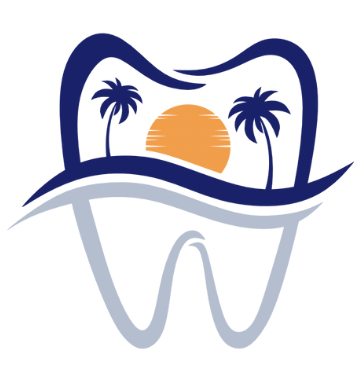When it comes to dental implants, many people underestimate the critical role of post-operative care. After surgery, following proper hygiene practices and understanding pain management can significantly affect healing. This post will break down essential steps like maintaining hygiene, managing discomfort, and recognizing signs of complications. By reading through this guide, readers will find useful tips to ensure a smooth recovery, making their dental implant experience more manageable and effective. Understanding these aspects can help alleviate concerns and promote long-lasting, healthy results with their new implants.
Key Takeaways
- Recognizing healing signs after dental implants is crucial for a successful recovery
- Maintaining good oral hygiene promotes osseointegration and prevents complications
- Soft foods and proper hydration support the healing process post-surgery
- Identify and report any signs of infection or implant failure to the dentist promptly
- Routine check-ups help monitor the health and longevity of dental implants
Understand the Importance of Post-Operative Care for Dental Implants
Recognizing the healing process after dental implants at lagu heights dental is vital for a smooth recovery. Post-operative complications such as injury or fever can arise, making understanding these aspects important. Knowledge about the duration of recovery and proper nutrition, including easy-to-eat foods like scrambled eggs, plays a significant role in promoting healing and ensuring the success of cosmetic dentistry procedures.
Recognize the Healing Process
After getting a dental implant, recognizing the healing process is essential. The body will need time to regenerate tissue at the implant site, which can be aided by gently rinsing the mouth with saline. This rinse helps mitigate any potential disease and supports a smooth recovery, ensuring that candidates for dental implants can enjoy the full benefits of their new smile.
Identify Common Post-Operative Complications
After receiving dental implants, patients may experience some common post-operative complications that can hinder their recovery. Issues such as pain, swelling, or even vomiting can arise, especially from the use of narcotic pain medications. Maintaining good oral hygiene is crucial during this time to promote osseointegration and ensure that the titanium implants properly bond with the bone, preventing complications that could affect the longevity of the implants.
Know the Duration of Recovery
Recovery after dental implants typically takes a few days to several weeks, depending on the individual and their unique healing process. Following the procedure, using an ice pack on the outside of the mouth can significantly reduce swelling and discomfort. Maintaining a healthy diet during this time, along with consistent dental care—like using gentle toothpaste—supports a smoother recovery and ensures that sedation effects wear off safely while promoting overall healing.
Essential Hygiene Practices After Dental Implant Surgery

Proper hygiene is crucial after dental implant surgery to ensure healing and prevent complications like bleeding. Following proper brushing techniques can keep the area clean without disturbing the abutment. Using recommended mouth rinses will further promote healing, while avoiding certain foods and beverages, such as those that could irritate the site or encourage dental implants smoking, supports a smoother recovery.
Follow Proper Brushing Techniques
Maintaining proper brushing techniques after dental implant surgery is essential to prevent bacteria buildup and reduce inflammation. Patients should use a soft-bristled toothbrush, focusing gently on the area around the implant without disturbing it, while also brushing the tongue to limit saliva-borne bacteria. Incorporating an antimicrobial mouth rinse can further support healing by minimizing any risk of infection during the recovery period.
- Use a soft-bristled toothbrush to avoid irritation.
- Gently brush around the implant area.
- Don’t forget to brush the tongue to control bacteria.
- Consider using an antimicrobial mouth rinse.
Use Recommended Mouth Rinses
Using recommended mouth rinses after dental implant surgery is vital for minimizing irritation and fostering a healthier healing environment. These rinses can help manage pain, especially when dealing with discomfort during the recovery process. Regular use not only keeps the area around the crown clean but also reduces the risk of tooth loss by preventing infections that could complicate the healing journey:
Avoid Certain Foods and Beverages
After dental implant surgery, it’s crucial for patients to avoid certain foods and beverages to support their recovery. Hard or crunchy foods can put unnecessary stress on the jaw and aggravate the surgical site, leading to increased pain. Instead, sticking to soft foods while using an oral irrigator for gentle cleaning can help maintain oral hygiene without disturbing the implant area, promoting a smoother healing process.
Pain Management Strategies Following Dental Implant Surgery
Managing discomfort after dental implant surgery is crucial for a smooth recovery. Over-the-counter pain relief options can help ease pressure on the gums, while prescription medications may be necessary for more intense discomfort. Natural remedies like herbal teas can reduce aches and may counter the effects of caffeine. Understanding these strategies ensures a comfortable healing experience.
Over-the-Counter Pain Relief Options
For those recovering from dental implant surgery, over-the-counter pain relief options can be a game-changer. Simple medications like ibuprofen and acetaminophen can help lessen discomfort and keep the pain at bay, allowing patients to stick to a soft diet while they heal. It’s also wise to follow any specific recommendations from the surgeon about pain management, ensuring effective care that supports recovery without risking complications like tooth decay.
Prescription Pain Medications and Their Uses
For those recovering from dental implant surgery, prescription pain medications can provide significant relief when over-the-counter options fall short. Often prescribed after procedures in prosthodontics, these medications are tailored to manage post-surgery discomfort effectively, especially if the anesthesia effects begin to wear off. It’s essential to follow the dentist’s advice on dosage and timing, as controlling pain can facilitate recovery, allowing individuals to engage in light physical activity and enjoy their meals, including liquid diets, without undue stress on the lips or surgical site.
Natural Remedies for Reducing Discomfort
For those navigating recovery after dental implant surgery, natural remedies can offer significant comfort. Gentle applications of a cold compress on the cheek can help reduce swelling and numb the area, providing relief without the need for medication. Additionally, herbal teas like chamomile can soothe discomfort and promote relaxation, making them a great choice for those looking to enhance their overall healing experience after the procedure.
Dietary Guidelines for Post-Operative Recovery

After dental implant placement, focusing on diet plays a crucial role in recovery. Consuming soft foods rich in nutrients aids optimal healing while keeping taste in mind. Avoiding certain foods can prevent complications and ensure comfort, especially around the healing abutment. Staying hydrated is equally important, ensuring that medications work effectively and supporting overall hygiene throughout the healing process.
Foods to Consume for Optimal Healing
After dental implant procedures, focusing on the right foods can significantly support healing. Soft, nutrient-rich options like yogurt, smoothies, and pureed vegetables are ideal because they provide necessary vitamins while being easy to consume. Along with maintaining a healthy diet, patients should also remember to follow any prescribed doses of antibiotics and consider using chlorhexidine mouth rinse to maintain oral hygiene and reduce the risk of infection during recovery.
Foods to Avoid After Implant Placement
After dental implant surgery, it’s vital for patients to steer clear of hard, crunchy, or sticky foods that could disrupt the healing process of the prosthesis. Foods like nuts, chips, and tough meats can not only cause discomfort but also lead to nausea or additional pain, especially when combined with post-operative medication. Sticking to softer options for a couple of weeks ensures the surgical site remains undisturbed, helping to promote a smoother recovery.
Staying Hydrated During Recovery
Staying hydrated during recovery after zygomatic dental implants is essential for healing and overall comfort. Proper hydration helps to minimize bruising and supports the body’s natural processes to regenerate tissue. Drinking plenty of water not only alleviates dry mouth, which can be a side effect of medications, but also ensures that nutrients are effectively transported throughout the body, aiding in a smoother recovery process.
Signs of Complications That Require Attention

Recognizing the signs of complications after dental implants is essential for a successful recovery. Symptoms of infection, such as increased swelling or unusual pain, can indicate trouble. It’s also important to identify signs of implant failure, which may manifest as mobility or discomfort. Knowing when to contact the dentist ensures timely intervention and helps maintain the health of the new smile.
Recognizing Infection Symptoms
Recognizing infection symptoms after dental implants is key for a successful recovery. Signs to look out for include increased swelling at the implant site, persistent or worsening pain, and any unusual discharge or bad taste in the mouth. If these symptoms occur, reaching out to the dentist for prompt evaluation can help address any complications early on.
- Increased swelling around the implant
- Persistent or worsening pain
- Unusual discharge or bad taste in the mouth
Identifying Signs of Implant Failure
Identifying signs of implant failure is crucial after dental surgery, as early detection can lead to better outcomes. Patients should watch for symptoms like unusual mobility of the implant or discomfort that doesn’t improve over time. If these signs appear, reaching out to the dentist as soon as possible can help address the issue effectively and ensure a successful recovery.
When to Contact Your Dentist
If any concerning symptoms arise after dental implant surgery, it’s crucial to reach out to the dentist right away. Signs such as increased swelling, persistent pain, or unusual discharge can indicate complications that require prompt attention. Addressing these issues early can prevent further complications and ensure a smoother recovery.
Maintaining Long-Term Care for Dental Implants
Routine dental check-ups are essential after healing to monitor the success of dental implants. Daily oral hygiene practices play a significant role in maintaining the implants and ensuring the surrounding gums remain healthy. Lifestyle adjustments can further enhance the longevity of implants, providing practical steps for care that can make a big difference in overall dental health.
Routine Dental Check-Ups After Healing
Routine dental check-ups after healing are essential for maintaining the longevity of dental implants. These visits allow the dentist to assess the health of the implants and the surrounding gums, ensuring everything is functioning smoothly. Regular check-ups not only provide peace of mind but also help catch any potential issues early, allowing for timely interventions that can safeguard the success of the implants and overall oral health.
Daily Oral Hygiene Practices
Daily oral hygiene practices are essential for ensuring the longevity of dental implants. Patients should brush their teeth at least twice a day using a soft-bristled toothbrush and fluoridated toothpaste, focusing gently around the implant area to prevent irritation. Flossing is equally important to keep the space between teeth and around implants clean, as this helps to avoid any plaque buildup that can lead to complications over time.
Lifestyle Adjustments for Implant Longevity
Making simple lifestyle adjustments can significantly enhance the longevity of dental implants. For example, maintaining a balanced diet rich in vitamins and minerals supports overall oral health and healing. Additionally, avoiding habits like smoking can prevent complications and ensure that the implants remain secure for years to come. By incorporating these modifications, individuals can take proactive steps toward preserving their new smiles and enjoying lasting results.
Conclusion
Post-operative care for dental implants is crucial for ensuring a smooth recovery and the long-term success of the procedure. Recognizing the healing process, maintaining proper hygiene, and managing pain effectively can significantly reduce complications. Following a soft diet and staying hydrated further support the healing journey. By prioritizing these care strategies, patients can enjoy a comfortable recovery and enhance the longevity of their new smiles.
Schedule your consultation Today!
28202 Cabot Rd, Suite 600 Laguna Niguel, CA 92677
Related Articles
Preparing for Dental Implant Surgery, After Care for Implants, Dental Implants Pricing Guide, Implants Vs Traditional dental, Traditional Dental Implants, Dental Implants, Same-Day Dental Implants, Affordable teeth implants, Dental implants surgery, Dentures with implants, Full Mouth Dental Implants, Mini Dental Implants, Zirconia Dental Implants
Dental Implant Success, Dental Implant Types, Dental Implant Candidates, Dental Implant Complications, Dental Implant Maintenanc, Dental Implant Cost Factors
See More Reviews From Laguna Height Dental. View information about local places in our community. Get Driving Directions to Our Practice





